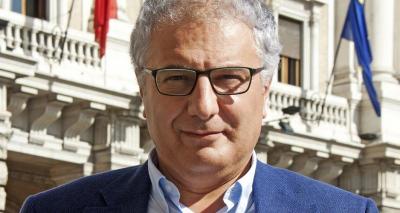Italian votes in Australia 'decisive' in referendum outcome

ROME -- Italians in Australia will be involved in a heated Referendum debate in Italy on constitutional reform. Their votes on Sunday, along with those of 5 million other Italians living outside Italy, could be decisive in a tight contest.
Marco Fedi, a parliamentarian of the ruling Democratic Party, is flying to Australia before the end of October to boost pro-reform votes in the referendum. He is to give talks at universities in Brisbane, Sydney and Melbourne and strengthen pro-reform committees which will work through public meetings, the media and postal campaigns.
Interviewed in Rome, he said the reform will break the present bottleneck caused by the Senate having to approve totally laws passed in the Lower House before they take effect which can lead to an endless ping pong between the two Houses. It will also reduce costs by reducing the number of Senators from 315 to 100. Moreover, it will make the Senate the voice of the Regions.
“It will enable the government to act more swiftly and efficiently with lower costs,” said Fedi.
Those opposed to the Referendum claim that many of the new provisions are confusing and that making regional councillors and mayors Senators, as it does, will give them an impossible workload.
The constitutional reform is linked to electoral reform and those opposed to the first claim that together they will pave the way for authoritarian government either by the Prime Minister Matteo Renzi or his successors.
This fear derives from the experience of Benito Mussolini’s dictatorship. Those who wrote the Constitution in 1946 wanted to avoid a replay: the result has been a series of democratic but short-lived governments. In a television debate, the eminent Constitutionalist Gustavo Zagrebelsky, who heads a NO group, admitted the fears of authoritarian government have been exaggerated.
Matteo Renzi claims that Italians are tired of elections in which all parties claim to have won and are exasperated by governments which must get legislation through two Houses based on different electoral systems.
His is a Can-Do government which pushed the Constitutional Reform through both Houses of Parliament. A Referendum was needed for popular endorsement and it looked as if a pro Renzi- government vote was a sure thing. But things have changed in recent months because the economy remains stagnant and, in administrative elections, the Democrats were beaten both in Rome and Turin.
Initially Renzi said that he would leave politics if he lost the Referendum.
He intended that as a threat but it united the opposition against him in an alliance which extends from the far Right to the far Left.
Some of the fiercest opponents are from his own Party which consists of the left-wing of the former Christian Democratic Party, such as Renzi, and ex-Communists. The most prominent of these is the former Prime Minister Massimo D’Alema who considers that Renzi is betraying the Democrat Party’s Leftist character.
Polls show the NO advocates have a three per cent lead but Renzi enjoys a fight and is skilled in televised debates and on social media. He may recover the last ground by the time the Referendum takes place.
The Italians living outside Italy, mainly in Latin America and elsewhere in Europe, could tip the scales.
The decision to allow these Italians to elect locals to represent them in the Italian parliament was controversial when introduced in 2001 but has since been emulated by France, Rumania and Portugal. Those who had campaigned to allow Italians to vote without, as previously, returning home, thought they would choose neo-Fascists but on the whole they chose leftists such as Fedi, who formerly worked for the migrant advocacy body CO.AS.IT in Australia.
Marco Fedi has perhaps the world’s largest electorate: Australia, New Zealand and the Pacific isles, Asia, Africa and Australia. Approximately 150,000 are eligible to vote in Australia and he aims to increase the proportion pushing for Constitutional reform.
do


